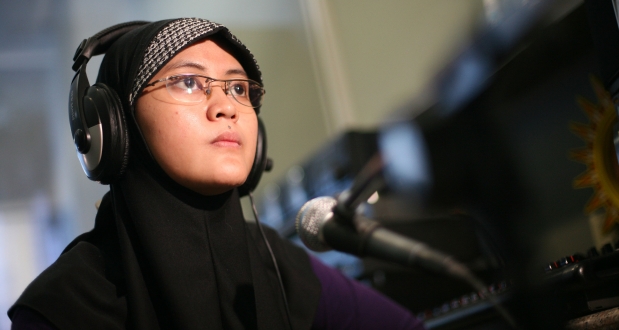- About
- Topics
- Picks
- Audio
- Story
- In-Depth
- Opinion
- News
- Donate
-
Signup for our newsletterOur Editors' Best Picks.Send
Read, Debate: Engage.
| July 07, 2017 | |
|---|---|
| topic: | Women's rights |
| tags: | #gender-based violence, #Kenya |
| located: | Kenya |
| by: | Cherotich Kenei |
The United Nations Assembly in 1993 adopted a declaration on the elimination of violence against women; further defining gender-based violence as: ‘Any act of violence that results in the physical, sexual, or psychological harm of suffering to women; including threats of such acts, coercion, or arbitrary deprivation of liberty whether occurring in public or private life'.
Still, in Kenya, violence remains part of everyday life. Casualties of the vice have largely been women and children, who bear the brunt of cultural ideas and practices that propagate gender-based violence. Furthermore, the effects of these hideous acts affect the positive impacts survivors have in the developmental progress of the country.
Moreover, statistics paint a gloomy picture. For instance, in Kenya, forty-five percent of women between the ages of fifteen and forty-nine have experienced a form of abuse either physical or sexual. Whereas a further one in every five women have experienced sexual violence, and whilst sixteen per cent of survivors stated that their attackers were strangers, a whopping sixty-four percent of gender-based survivors reported that their assailant was known to them.
Thus it comes as no surprise that majority of all violence committed were by intimate partners, and of this, a reported ninety percent were men. Sadly, survivors have limited or lack the access to available health care and counselling services that help them bring back meaning to their lives and families. It is because of this reason that incidents of gender-based violence against both men and women still remain highly under-reported.
This violence knows no social or economic status; it affects all ages, education levels and social groups, in both the rural and urban settings. While speaking to survivors of the crime, one factor was clear, gender-based violence initiatives have been put in place; however, lack of widespread awareness has left victims uninformed of their rights and options following the atrocity. This means that devastated individuals have to be content with the financial and emotional costs associated with treatment and seeking justice.
According to one survivor I spoke to, her abuse began psychologically. She was mentally deprived of her human value until she viewed herself as worthless. Then when the beatings began, she mentally felt she deserved it. Further citing that she felt the beatings were justified as she was not woman enough for her husband; on the other hand, another victim confessed that she tolerated the abuse by her husband because she did not want to be a social outcast in a society that upholds marriage and views marital abuse as a private affair that should neither be made public nor discussed in the public realm.
Thus the abuse of these two women continued unchecked. It was not until they mentally chose to change their environment that a sense of humanity returned. This journey was no easy task; they had to seek comfort from other family members and counselling to help them change their mentality, by adopting positive self-awareness, self-esteem and self-acceptance. They are, however, the lucky ones; many victims are left wallowing in the pits of hopelessness when they are silenced, their stories untold or their justice denied.
Hence, it is heartening to see a wave of change coming to correct this societal dysfunction. The Gender Ministry of Kenya and the United Nations Population Fund are establishing and strengthening the fight against sexual and gender-based violence. This partnership fund will cost one billion and two hundred million Kenya shillings and shall be carried out and used over a period of four years.
The fund shall facilitate the prevention, protection, prosecution, programming and partnerships aimed at combating gender-based violence in the country. This move shall ensure that focus on gender-based violence shall stop being an activist’s plight but a national agenda.
According to the Public Service, Youth and Gender Affairs Cabinet Secretary, Mrs. Sicily Kariuki the government shall play a vital role in focusing on the root causes of gender violence that spearhead gender-based power inequalities and discrimination asserting that responsive measures such as providing adequate medical services to survivors of gender-based violence are crucial and lifesaving.
For now, centres for addressing sexual and gender-based violence shall be opened in various large public hospitals across the country in cities such as Nairobi, Mombasa, Nakuru, Kisumu and Eldoret. Moreover, gender desks will be set up in police stations, a significant stride that emphasises Kenya's determination to address inequalities.
However, a more important task to society still remains, that is a change of mental conceptions in regards to gender. From household to governance, a different mode of thinking is needed. For this is the only way the stigma related to gender-based violence can be won. The appreciation of gender need not be our divide but our blessing. Honour in sexes should be upheld to ensure a seamless contribution to development progress from both parties.
For now, the time has arisen for a different tale; gender-based violence isn't a preserve of the women in society but a vice that affects men too. Voices of survivors ought to echo the pain that such violence brings; it should bear the face of both man and woman. Thus, it is time perhaps for Kenya to accepts the two-thirds gender rule, a strong indication of its commitment to gender equity and equality. For if women’s health, participation in the economy and their education levels are not a priority in the development agenda then gender gaps shall prevail leaving women as vulnerable subjects of violence.
By copying the embed code below, you agree to adhere to our republishing guidelines.
